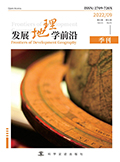

低碳旅游作为适应时代发展的一种新型旅游形式, 近年来得到了国内外学者的广泛关注。本文根据计划行为理论和态度ABC理论, 建立青年旅游者低碳旅游认知行为模型, 并通过问卷调查分析对北京植物园青年旅游者对低碳旅游的认知、态度和行为意向的关系进行了讨论。研究结果表明: 首先, 青年旅游者普遍具备较高的低碳旅游认知水平, 能够认识到旅游活动对碳排放的影响以及低碳旅游对于环境保护的重要性; 其次, 主观规范、积极的低碳旅游态度和知觉行为控制均对青年旅游者的低碳旅游行为意向具有显著的正向影响; 再次, 低碳旅游认知也直接对行为意向产生正向作用, 进一步强调了提高认知水平在推动低碳旅游中的重要性。基于以上研究结结果, 本文提出了推动青年旅游者践行低碳旅游的对策: 政府、旅游企业和社会组织应联手开展宣传活动, 提升青年认知; 打造低碳旅游环境, 完善设施; 强化社会规范, 培养积极态度。
Low-carbon tourism, as a new form. of tourism that adapts to the development of the times, which has received widespread attention from domestic and international scholars in recent years. Based on the Theory of Planned Behavior. and the ABC Theory of Attitude, this study establishes a cognitive behavior. model of low-carbon tourism for young tourists. Through questionnaire surveys and analysis, it discusses the relationship between young tourists' cognition, attitude, and behavioral intention of young tourists in Beijing Botanical Garden towards low-carbon tourism. The research findings indicate that: Firstly, young tourists generally have a high level of cognition about low-carbon tourism, recognizing the impact of tourism activities on carbon emissions and the importance of low-carbon tourism for environmental protection. Secondly, subjective norms, positive attitudes towards low-carbon tourism, and perceived behavioral control all have a significant positive impact on young tourists' behavioral intentions towards low-carbon tourism. Thirdly, awareness of low-carbon tourism also directly positively influences behavioral intentions, further emphasizing the importance of enhancing awareness in promoting low-carbon tourism. Based on these findings, this paper proposes counter measures to encourage young tourists to engage in low-carbon tourism: governments, tourism enterprises, and social organizations should jointly conduct promotional activities to raise youth awareness; create a low-carbon tourism environment and improve facilities; and strengthen social norms to foster positive attitudes